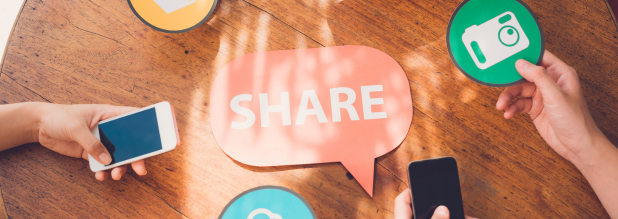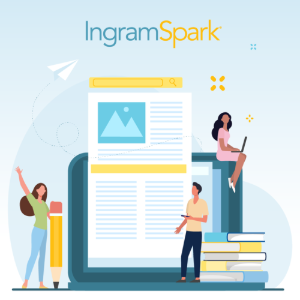When you're creating your marketing strategy and thinking of all the ways in which you can promote your book, it's likely that Pinterest isn't at the top of your list. It's been around for years, it's not known for the bells and whistles that some platforms offer, and it's been primarily known as the the home of crafts and DIY projects. However, you're actually doing yourself a great disservice by overlooking the promotional possibilities that exist with Pinterest.
Pinterest still matters in 2025, and you can leverage it to market your books more strategically and effectively.
Why Pinterest Matters
For self-published authors looking to grow their readership, boost web traffic, and extend the life of their backlist titles, Pinterest offers long-term visibility without the constant grind of daily posting.
What you may not know…
- In 2024, Pinterest was determined to be the second fastest-growing social media platform. It has 275 million weekly users, making up over half of its total user base.
- The platform doesn’t just reflect trends—it predicts them. Each year, it publishes a Pinterest Predicts report based on billions of user searches, and 80% of its predictions come true.
- This makes it one of the most reliable tools for planning products, digital marketing content, and campaigns before trends peak.
Who's Using It?

Pinterest's user base is more powerful than many realize, and it can be a veritable goldmine for self-published authors targeting niche or genre-specific audiences.
- 76% of Pinterest users are women, with the remaining split between men and non-binary users
- Over 60% of Pinterest’s global audience is aged 25–44, a prime age range for book-buying adults.
- Pinterest users are planners and buyers—they browse with intention. 80% of weekly Pinterest users found a new product or brand on Pinterest.
- Users are more likely to have higher household incomes than users on Facebook or Instagram, with Pinterest reaching 40% of U.S. households with an annual income over $150K.
What Makes It Relevant to Book Buyers?
If you're writing romance, fantasy, children's books, self-help, or anything visual or inspirational, your audience is already on Pinterest—you just need pins that speak to their interests and keywords that match their searches.
- Unlike TikTok or Instagram, Pinterest isn't just a feed—users search for specific interests like: "grumpy sunshine romance," "Sara J. Maas books," or "sci-fi/fantasy book series."
- This makes it more like Google + Instagram—with the SEO value of keywords and the visual appeal of design.
- Since Pinterest works like a visual search engine, it's perfect for sharing book covers, mood boards, author quotes, and lead magnets.

- The platform is all about visual storytelling. Users love to save and share character art and genre-themed content, and authors can join in by posting branded and searchable pins.
- Users actively search for book lists or round-up articles in order to add to their TBR (To Be Read) lists.
- Self-published authors can create fun, list-style pins using popular search phrases, making it easier for their books to appear in inspiring, curated content.
- Unlike Instagram or TikTok, where posts vanish in 48 hours, Pinterest pins can gain traction for 3 to 6 months or longer. This makes it a valuable platform for promoting backlist titles, series starters, or seasonal reads.
How Can You Make the Most of Pinterest?
Optimize Your Pinterest Profile
Think of your profile as both your creative showcase and a welcoming doorway for new readers. Every detail should reflect your professionalism, highlight the keywords relevant to your books, and demonstrate the unique value you offer.
- Write an SEO-friendly author bio for yourself that includes your genre, what you have to offer readers, and a call-to-action (ex: check out my website)
- Include your author name or brand in your display/profile name (ex: Joan Smith | Romantasy Author)
- Always link to your website, blog, lead magnet, or book sales page.
Share Your Favorite Content
You not only want to establish yourself as a talented author…you also want to be known as a real person. Let readers in on who you are and what makes you you!
- Just as you would on Facebook or Instagram, share things that make you laugh, make you think, or offer insight into your creative process. Keep your pins relatable and interesting by sharing:
- Funny memes about writing, the love of books, or genre tropes
- Favorite recipes or recommendations for TV shows you can't stop watching
- Lists that might be of interest to readers such as which books are on your TBR list, who your favorite authors are, or which upcoming books you're most excited about.
Create Targeted Boards
Put yourself in your audience's shoes when deciding which boards to create. They should mirror what your audience is looking for. Make sure each board has a title with keywords that people are actively searching for on Pinterest.
Share…
-
- Writing Advice
- Offer insight into your writing habits or tips for staying on task
- Discuss how and why you chose your character names
- Writing Advice
-
- Book Aesthetics
- Post illustrations or AI-generated images of your main characters
- If your book is historical fiction or futuristic fantasy, pin images of the fashions your characters would be wearing
- Behind-the-Scenes Info
- Share insight into the process of choosing your final book cover
- Offer sneak peeks of upcoming books in a popular series
- Post photos of yourself at book signings, conventions, etc.
Content Repurposing - Book Aesthetics
- You'll want to post regularly, weekly is ideal, but you don't necessarily have to worry about creating new content all the time. Take your existing content from TikTok, Instagram, or blog posts and turn them into engaging pins.
- Popular Content Types include
-
Mood boards
-
Writing prompts
-
Publishing checklists
-
Author branding visuals (quotes, book covers, series guides)
-
- Popular Content Types include
Pinterest is effective for directing traffic to your author site, especially for listicles, lead magnets, or merch. Always pin with a purpose!
Your pins should link to:
-
-
Sales pages
-
Newsletter sign-up
-
Blog content that serves your reader niche
-
Landing pages for events or pre-orders
-
Pinterest remains an underrated but highly strategic platform for indie authors ready to dive into creating eye-catching content. If your marketing plan includes evergreen content, a strong author brand, or a collection of past works, Pinterest can significantly boost long-term discoverability.















